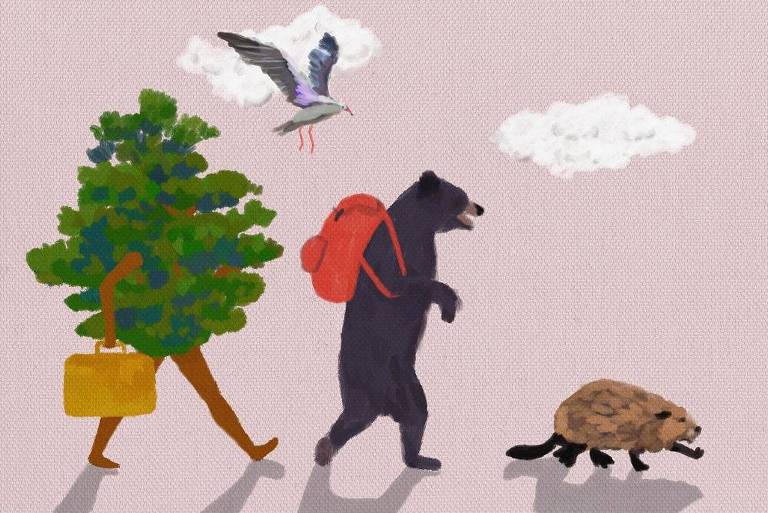Today, it is not possible to beat the evolution of climate trends—exactly how and where they will occur, and to what degree—but scientific models are already predicting that biomes around the world will undergo significant changes in their species composition. In other words, there will be new ecosystems, but there are still doubts about which ones will remain and where on the planet. Therefore, it is difficult to implement the data we have in public land use and conservation policies. In any case, it is urgent to meet the challenges with the weapons we have.
And why does climate change pose a threat to species? Because the climatic conditions in the areas in which they live become unsuitable for their survival. Thus, their livelihood may depend on their success in reaching favorable areas, but this process can be interrupted by landscapes that make it difficult for them to spread, such as farmland and cities. Given this context, one of the best and least explored options for avoiding extinctions caused by climate change is to create a robust network of biological reserves and national parks, among others.
Historically, protected areas are essential to biodiversity and should be the main strategy for environmental policy makers and land use managers. The Convention on Biological Diversityin force since 1993 and today one of the most relevant forums on the planet to discuss environmental issues, supports the protection of territories as an essential tool, so much so that it reaffirms its importance through the goals of Aichi Treaty.
The problem is that in some cases the reason for the protection and preservation of a particular area is its natural beauty, it is rarely identified systematically in places that can facilitate the movement of species or the dispersal of the diaspora (seeds, for example). especially those considered to be at high risk. An example in Brazil would be Certao Veridas Peruaçu Mosaic, in the north of Minas Gerais. Comprising public conservation units, private reserves, and indigenous lands, the mosaic serves as a veritable wildlife corridor. However, almost no national system of protected areas is designed to function as corridors that would facilitate the dispersal of plants as a result of climate change.
If species need to access new areas as climate changes, will the current network of protected areas be effective conservation efforts? The answer, perhaps one of the most important for managers interested in natural, urban and agricultural ecosystems, requires the use of big data (big data), supercomputers, and social science methods that consider the implementation and context of climate change models. After all, decisions about livelihood priorities are made in real-world environments, where biodiversity and its movements represent only one set of concerns.
There could be millions of people on Earth who would be interested in conservation policies. How can the autonomy and self-determination of the people who call these lands their home be promoted? How can it be integrated into efforts to mitigate the effects of climate change?
Future projects must integrate the use of biodiversity big data and climate change scenarios with stakeholder participation and social science insights already in the design process. This multi-faceted approach is in everyone’s interest as it has the potential to improve the achievement of human well-being goals in the short and long term. But given the huge gap that still exists between ecology, social science, and environmental governance, will we get there in time to reduce the effects of climate change?
*
Danilo Neves is an ecologist and professor at the Federal University of Minas Gerais.
Participation In the newsletter from Instituto Serrapilheira to keep up with more news from the institute and from the Ciência Fundamental blog.
Current link: Did you like this text? A subscriber can unlock five free accesses to any link per day. Just click the blue F button below.

“Wannabe internet buff. Future teen idol. Hardcore zombie guru. Gamer. Avid creator. Entrepreneur. Bacon ninja.”

